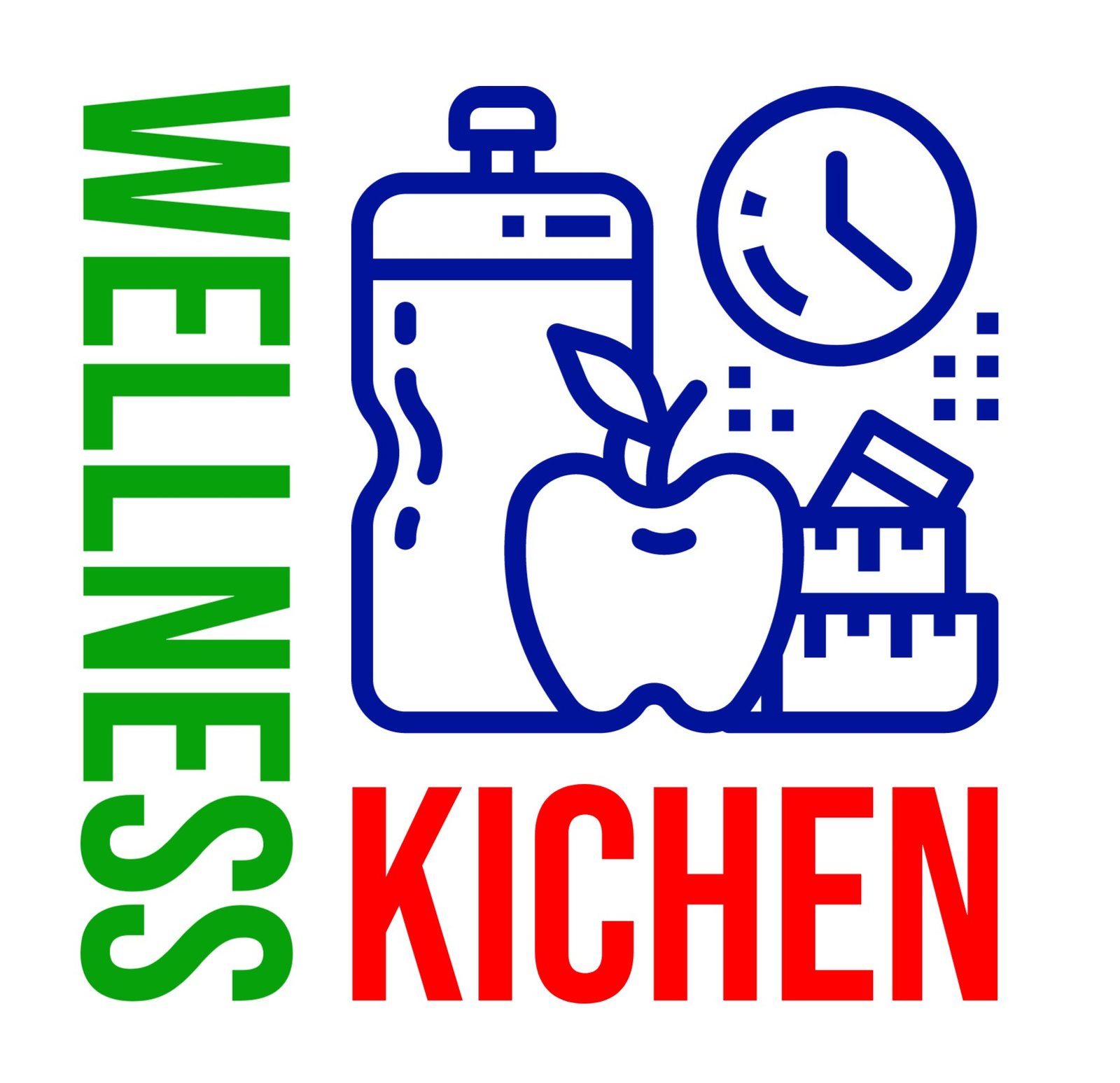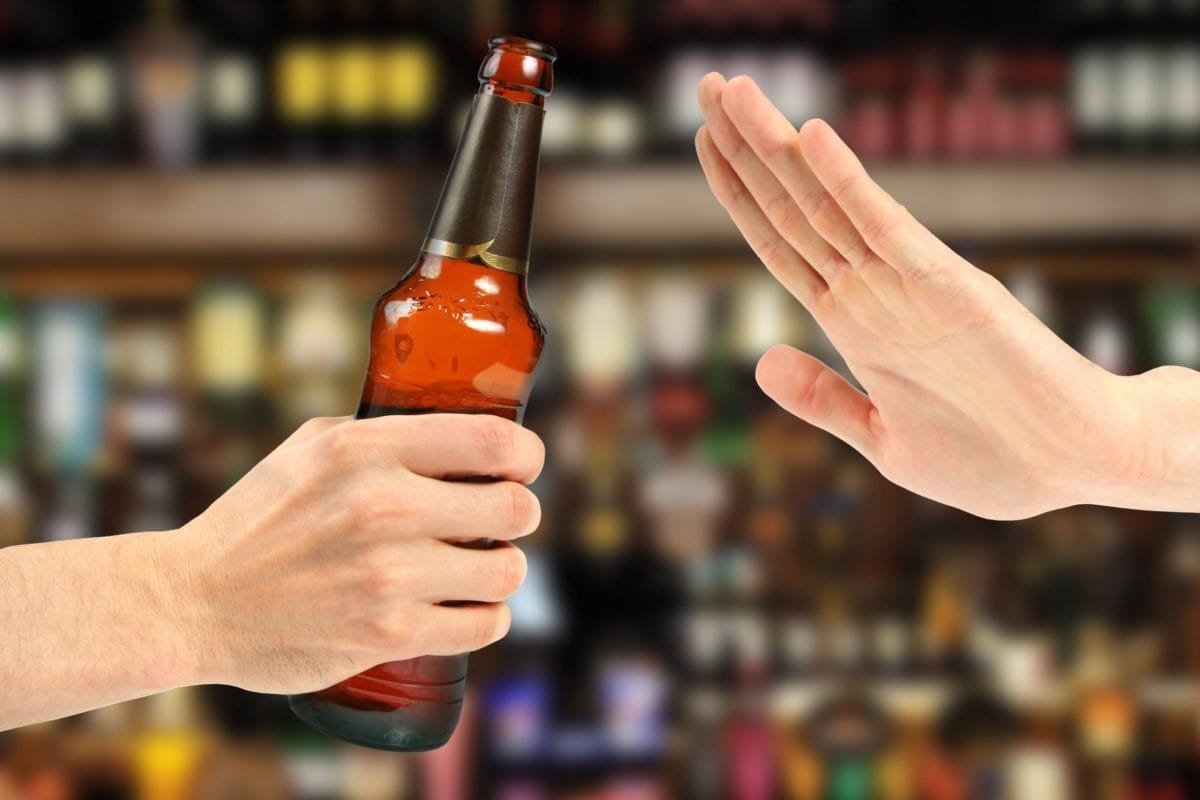We detail the physical and mental changes that take place after you’ve quit booze.
Did you ever stop to think those happy hours were actually making you less happy? Giving up alcohol—for even just one month—has been linked to significant changes in people’s health. Not only can you make serious progress toward increasing your chances of weight loss after quitting alcohol, but what happens when you stop drinking alcohol also extends beyond losing weight. It can also include lowering your cancer risk, boosting your heart health, and even having better sex.
If you drink alcoholic beverages frequently, you might be interested to know how your body may change if you cut out beer, wine, and liquor for a while. Whether it’s for a day, a week, or even a month, it can make a difference.
To give you an idea of what happens when you stop drinking, we’ve gathered the 14 benefits of not drinking alcohol you can expect to reap below.
You’ll eat much less.
Why does alcohol cause weight gain? The bulk of it can be attributed to excess empty calories, but there are other factors at play, as well. Research shows that drinking alcohol can also increase your appetite for high-calorie foods. According to an Appetite journal study, people who drank only half a shot of alcohol (20 grams worth) ate 11 percent more than those who abstained and experienced more cravings for high-fat foods. That’s right: Just half a drink can make you hungrier. And that can lead to a domino effect. Read on.
You’ll have more energy to speed up weight loss.
Getting better sleep makes you eat better. According to a 2013 study published in the journal Nutrition & Diabetes, drinking alcohol results in shorter, less quality sleep, which caused study subjects to shift from eating carbohydrates to eating fats. And each 30-minute deficit of sleep caused the subjects to eat 83 additional calories, on average! So not only will a Dry January ensure you’re refreshed from additional shut-eye, you’ll be more likely to eat energy-boosting carbs instead of slug-making fatty foods. If you average an additional hour of quality sleep, you can look forward to saving almost 5,000 calories in 30 days—about a pound and a half!
You can lower your risk of liver damage and diabetes in just one month.
In 2013, 14 staffers at New Scientist magazine whose drinking ranged from eight to 64 12-ounce bottles of beer per week took a short-term break from alcohol. Ten people gave up the booze for five weeks. Another four didn’t. Doctors at the Institute for Liver and Digestive Health at University College London tested their blood before and after, and discovered that the teetotalers’ liver fat—a predictor of liver damage—fell 15 to 20 percent! The abstainers’ blood glucose levels—a key factor in diabetes—also dropped by an average of 16 percent!
You’ll sleep better.
Though booze can make you fall asleep initially, it disrupts shut-eye. That conclusion was reached by a review of 27 studies on the topic. Another recent study in the journal Alcoholism: Clinical & Experimental Research found that drinking before bed increases alpha wave patterns in the brain. If you want restorative sleep, those waves don’t help. Once you give up alcohol, however, you’ll get better sleep and start feeling more refreshed and sharp.
You’ll experience fewer food cravings.
A study in the Nature journal found that booze can trigger cravings. How does that work? Agrp neurons, which are usually activated by starvation and result in intense hunger, were found to be triggered by alcohol consumption.
You’ll improve digestion.
Even in relatively small doses, alcohol can negatively affect digestion by altering the stomach’s secretion of gastric acid as well as its gastric motility: the ability of your stomach muscles to break down ingested food. When these functions are impaired, your digestion suffers. Studies have shown that pairing alcohol with a meal can slow down digestion while the overproduction of gastric acid can irritate the stomach.
You can boost your metabolism.
When you consume alcohol, your body uses ethanol for energy, not other sources like fat. Skip the booze and your body will burn carbs, then flubber.
You’ll be more hydrated.
If you’re used to having a few brews or glasses of wine at home each night, you might want to stop drinking and replace the ritual with flavored seltzers or detox waters you make yourself. Plus, alcohol is a diuretic, meaning it flushes your body of water through urine. Less alcohol means your body can retain the right amount of water for proper hydration and electrolyte balance.
You’ll have better skin.
Alcohol is a diuretic, which leeches fluids from your body. (Translation: It causes you to pee more than you otherwise would.) But unlike tea and coffee, which are also diuretics, alcohol decreases the body’s production of the antidiuretic hormone that helps the body reabsorb water. That’ll show up on your face. After just a few days of abstinence, you’ll notice that your skin looks and feels more hydrated, and skin maladies like dandruff, eczema or rosacea may also improve.
You’ll improve your heart health.
Per the American Heart Association, drinking alcohol can raise the level of triglycerides and harmful fats in the blood. That can lead to plaque buildup in your arteries and heart disease. How? According to a study published in the journal Current Opinion in Lipidology, drinking booze is closely related to the ingestion of fat. Consuming one makes your hypothalamus signal that you’re craving the other.
You’ll reduce your risk of stroke and nerve damage.
Excessive drinking and binge drinking can lead to stroke and neuropathy. Why? The American Heart Association says that regular heavy drinking can raise blood pressure and cause irregular heartbeats over time. And according to the National Institute of Health, excessive boozing directly poisons nerves.
You’ll do better at work.
In the New Scientist study, participants who quit booze for 30 days reported an 18 percent increase in concentration and a 17 percent boost in performance at their jobs. Quit raising a glass and you’ll be on your way to getting a raise.
You can reduce your cholesterol levels.
In the New Scientist study, staffers who quit alcohol found their blood cholesterol levels fell by an average of 5 percent in just 30 days! This is because abstaining helped their bodies sweep out those nasty, fatty triglycerides.
You may have better sex.
While a glass or two of wine or a few cocktails may seem to set the mood, it’s actually a depressant, which is the last thing you want in the bedroom. It can play havoc with a man’s ability to get and keep an erection, which can dampen the libido for women as well. And while all alcohol affects the liver’s ability to get rid of excess estrogen, beer contains phytoestrogens—plant-derived estrogens that dampen virility and fertility. Taxing the liver with alcohol can make it less effective at metabolizing hormones, which can convert androgens into estrogens, resulting in a diminished sex drive.
You’ll lower your risk of cancer.
According to the National Cancer Institute, drinking booze has been linked to an increased risk for cancers of the mouth, liver, breast, colon, and rectum—and the risk increases the more you drink. You can guarantee you’ll lower your cancer risk in just 30 days. How? Replace your post-boozing McDonald’s menu with snacks and meals high in fibrous fruits, veggies and legumes. In a 2015 Nature Communications study, scientists from Imperial College and the University of Pittsburg found that swapping a meat-heavy Western diet for a high-fiber one increased healthy, protective gut bacteria and lowered colon cancer biomarkers—in just two weeks!

